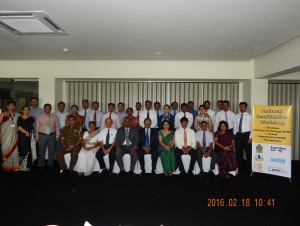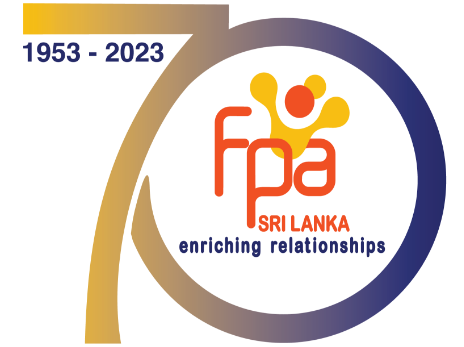A National sensitization workshop on ‘Minimum Initial Service Package’

A National sensitization workshop on ‘Minimum Initial Service Package’ (MISP) for Sexual and Reproductive Health during emergencies took place at Water’s Edge Hotel on the 18th of February 2016. The workshop was organized by the Family Planning Association of Sri Lanka (FPA Sri Lanka) in collaboration with the Ministry of Disaster Management.
MISP is a part of the IPPF SPRINT Project, through which it is supported and implemented. The SPRINT (Sexual and Reproductive Health Programme in Humanitarian Settings) Initiative is led by the International Planned Parenthood Federation (IPPF) in collaboration with UNFPA and other national and international partners and aims to improve health outcomes of crisis-affected populations by reducing preventable sexual and reproductive ill health, disability and death. Through this initiative, FPA Sri Lanka (Member Association of IPPF) hopes to advocate for strengthening the capacity of service providers to deliver practical solutions for men and women, to deal with issues such as pregnancy, childbirth, STIs/HIV and the aftermath of rape and violence in a crises or during a disaster. This initiative also involves engaging with key decision makers for policy changes, in order to raise awareness and strengthen coordination when delivering services to affected populations.
The workshop was attended by the Honourable Minister of Disaster Management Mr. Anura Priyadarshana Yapa, who stressed the importance of highlighting Sexual and Reproductive Health during emergencies among other priorities and also stated that it should be included in the school curriculum for better acceptance and understanding the needs of people.
The Consultant Dr. Harishchandra Yakandawala, who conducted a situational analysis through a rapid assessment for the SPRINT project in Sri Lanka, presented the findings of the current situation with regards to disaster and emergency response in Sri Lanka, which included recommendations for wider incorporation of MISP into the national disaster response and training through enhancing the present curricula developed for disaster management in various sectors. This was followed by a technical session on MISP and a panel discussion conducted by resource persons from the Ministry of Health, the Family Health Bureau and the Faculty of Forensic Medicine of the University of Peradeniya.
Also present at the workshop were officials of the Ministry of Disaster Management and Disaster Management Centre, officials of the Ministry of Child & Women’s Affairs, Department of Police, academic staff from universities, representatives from Save the Children, Care International, Child Fund and staff from UNDP and UNFPA. In addition, two representatives of IPPF South Asia Regional Office SPRINT Initiative were present as part of a week-long observation tour of the SPRINT Project implementation in Sri Lanka.
.png)


